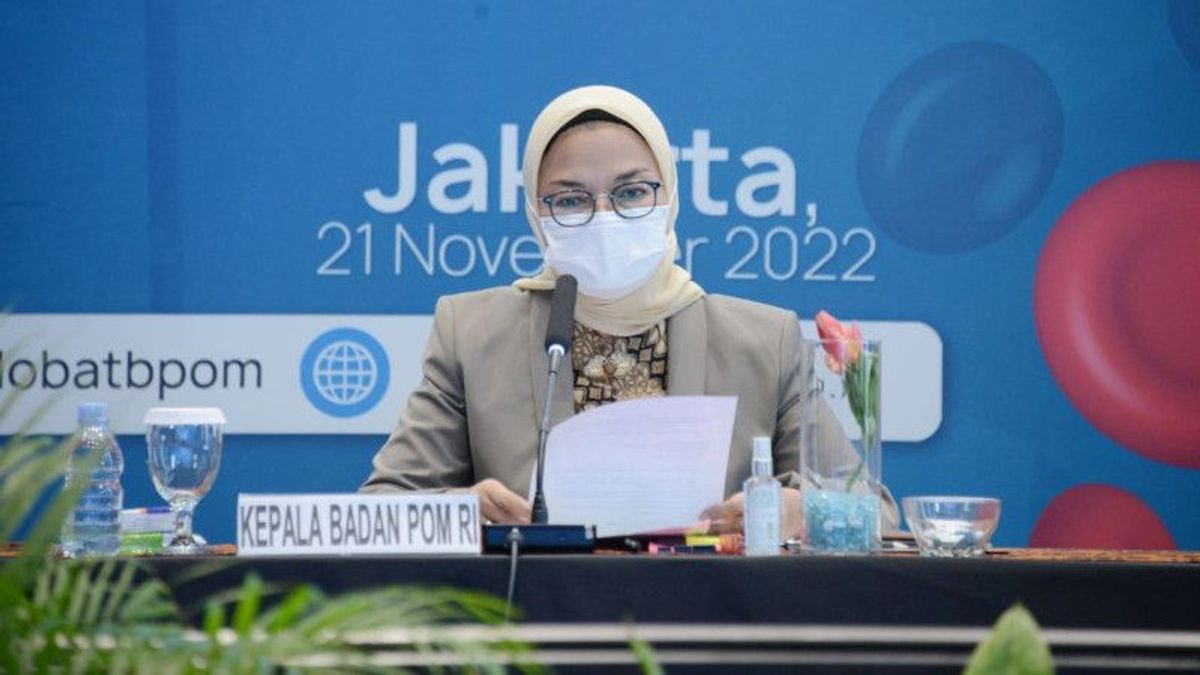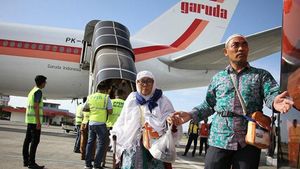JAKARTA - The Food and Drug Administration (BPOM) stated that currently there is no domestic pharmaceutical industry that is ready to process blood plasma into plasma derivative products, both in terms of business and technology that will be used.
Head of BPOM Penny K Lukito stated, Indonesia with a large population has the potential to be able to produce blood plasma which can then be processed into plasma derivative products.
"The current condition shows that plasma fractionation facilities require a very large investment, but not profitable, considering that blood plasma is not to be commercialized," he said in a written statement in Jakarta, Antara, Wednesday, November 23.
For this reason, he continued, it is necessary to provide government support and intervention in identifying the problems faced by the blood transfusion unit (UTD) and the pharmaceutical industry that will develop the plasma fractionation industry.
Blood plasma is the most important component of human blood, one of which is protein and antibodies that function to treat serious health problems, as well as a therapy for rare chronic conditions, including autoimmune and hemophilic disorders.
The content of blood plasma used in the treatment/therapy is obtained through a very specific processing process, as well as the test method used. The results of the processing process result in a pharmaceutical preparation referred to as a plasma derivative product or a plasma derivative medical product (PDMP).
According to him, the development of plasma fractionation facilities, as a support for the independence of domestic blood products, needs special attention.
All plasma derivative products used in Indonesia today, are felt to be increasing in demand and are imported products at high prices.
BPOM initiated "The Cross-Sector Forum for the Industrial Development of Plasma Fractionation in the Context of Realizing Independence of Domestic Blood Products" on November 21, 2022.
Through this forum, BPOM seeks to increase coordination and commitment between the central government, local governments, the Indonesian Red Cross (PMI), hospitals, and the pharmaceutical industry in order to facilitate regulations, resources, and the availability and readiness of technology to accelerate the development of the domestic plasma fractionation industry.
Meanwhile, to achieve the independence of domestic blood products, Penny stated, plasma raw materials originating from UTD have been certified for good drug manufacturing (CPOB).
Currently, there are 19 UTDs that have received CPOB certificates, namely 18 UTD PMI and one UTD hospital.
BPOM continues to strive to support the preparation of CPOB certified UTD facilities to ensure the quality of blood plasma and can meet the adequacy and continuity of the need for plasma raw materials.
He said that the continuous synergy between ministries/agencies, as well as the collaboration of academia, business, government, and community (ABGC) is expected to provide input in realizing safe, efficacious, quality, and competitive production facilities for domestic plasma derivative products in the international market.
The English, Chinese, Japanese, Arabic, and French versions are automatically generated by the AI. So there may still be inaccuracies in translating, please always see Indonesian as our main language. (system supported by DigitalSiber.id)
Most Popular Tags
#Prabowo Subianto #New Year #pdip #Hasto Kristiyanto #nataru #NatalPopular
27 Desember 2024, 02:36
27 Desember 2024, 00:30
27 Desember 2024, 01:25
27 Desember 2024, 08:13













